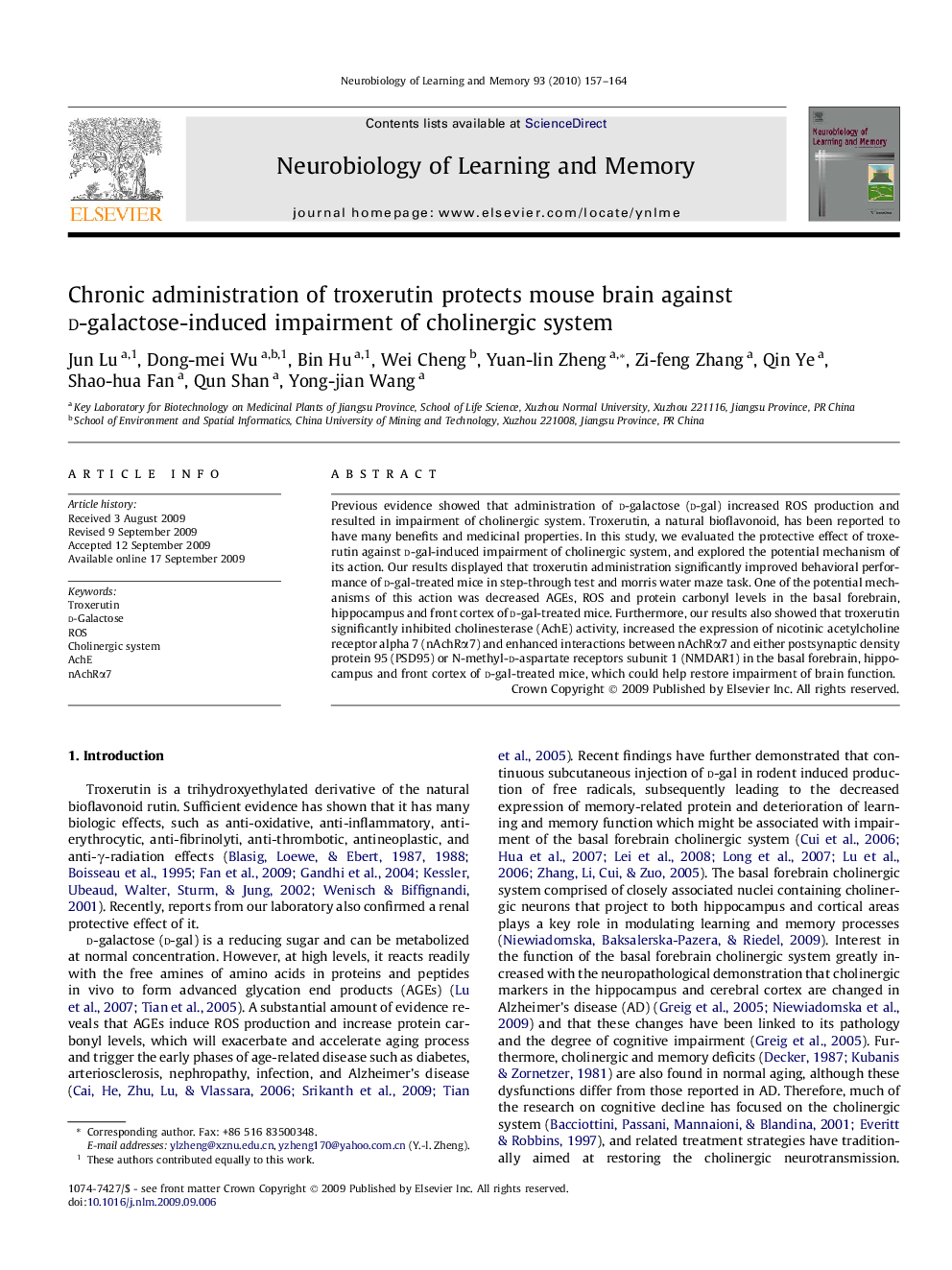| Article ID | Journal | Published Year | Pages | File Type |
|---|---|---|---|---|
| 936936 | Neurobiology of Learning and Memory | 2010 | 8 Pages |
Previous evidence showed that administration of d-galactose (d-gal) increased ROS production and resulted in impairment of cholinergic system. Troxerutin, a natural bioflavonoid, has been reported to have many benefits and medicinal properties. In this study, we evaluated the protective effect of troxerutin against d-gal-induced impairment of cholinergic system, and explored the potential mechanism of its action. Our results displayed that troxerutin administration significantly improved behavioral performance of d-gal-treated mice in step-through test and morris water maze task. One of the potential mechanisms of this action was decreased AGEs, ROS and protein carbonyl levels in the basal forebrain, hippocampus and front cortex of d-gal-treated mice. Furthermore, our results also showed that troxerutin significantly inhibited cholinesterase (AchE) activity, increased the expression of nicotinic acetylcholine receptor alpha 7 (nAchRα7) and enhanced interactions between nAchRα7 and either postsynaptic density protein 95 (PSD95) or N-methyl-d-aspartate receptors subunit 1 (NMDAR1) in the basal forebrain, hippocampus and front cortex of d-gal-treated mice, which could help restore impairment of brain function.
